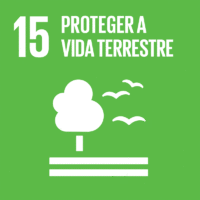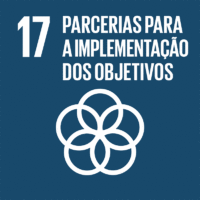Ciência_Iscte
Publicações
Descrição Detalhada da Publicação
Gene flow and population structure of the endemic Azorean bat (Nyctalus azoreum) based on microsatellites: Implications for conservation
Título Revista
Conservation Genetics
Ano (publicação definitiva)
2008
Língua
Inglês
País
Países Baixos (Holanda)
Mais Informação
Web of Science®
Scopus
Google Scholar
Esta publicação não está indexada no Overton
Abstract/Resumo
The Azorean bat (Nyctalus azoreum) is endemic to the Azores archipelago and is listed as endangered due to its reduced and fragmented distribution range. We assessed genetic diversity at eight microsatellite loci in 280 individuals from 14 locations throughout six islands. Overall, we found that the Azorean bat populations are not genetically impoverished. Indeed, the number of alleles per locus ranged from 8 to 10 and the observed heterozygosity ranged from 0.77 in Terceira to 0.83 in Faial. The highest genetic diversity and level of private alleles was observed in S. Miguel, the largest island, and the closest to the mainland. Private alleles occurred at all islands except in Graciosa. Global and pairwise F ST among islands were all statistically significant, suggesting restricted gene flow. These results, together with those of factorial correspondence analysis, Bayesian clustering method, and individual assignment tests, corroborate the conclusions of a previous mtDNA based study, providing strong support for the existence of two major subpopulations: one includes all islands of the Central Group and the other corresponds to S. Miguel. Gene flow between them is very limited, suggesting that management plans should avoid translocations between these subpopulations.
Agradecimentos/Acknowledgements
--
Palavras-chave
Classificação Fields of Science and Technology
- Ciências Biológicas - Ciências Naturais
Contribuições para os Objetivos do Desenvolvimento Sustentável das Nações Unidas
Com o objetivo de aumentar a investigação direcionada para o cumprimento dos Objetivos do Desenvolvimento Sustentável para 2030 das Nações Unidas, é disponibilizada no Ciência_Iscte a possibilidade de associação, quando aplicável, dos artigos científicos aos Objetivos do Desenvolvimento Sustentável. Estes são os Objetivos do Desenvolvimento Sustentável identificados pelo(s) autor(es) para esta publicação. Para uma informação detalhada dos Objetivos do Desenvolvimento Sustentável, clique aqui.

 English
English



